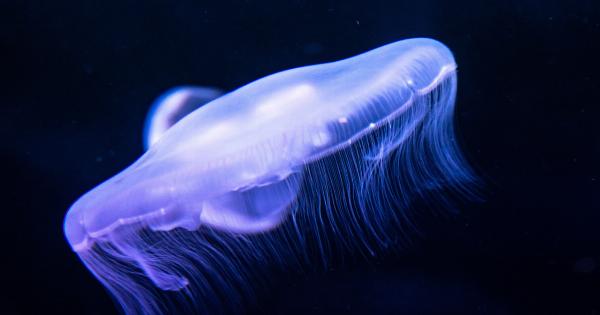Psychotherapy is a type of mental health treatment that aims to help people with mental health conditions, emotional struggles, and relationship problems. Psychotherapy is also known as talk therapy or psychological therapy.
It is a collaborative treatment process between a trained therapist and a client, and it is based on communication, trust, and empathy.
But how does psychotherapy impact the brain? A growing body of research suggests that psychotherapy can not only improve mental health symptoms, but can also lead to changes in brain structure and function.
The Neuroplasticity of the Brain
The brain has the ability to change and adapt to different experiences throughout a person’s life. This quality is known as neuroplasticity.
Neuroplasticity means that the brain’s structure and function can change in response to environmental and external factors such as learning, trauma, and stress.
Psychotherapy works by providing clients with a safe and supportive environment where they can explore their thoughts, emotions, and behaviors.
By doing so, psychotherapy can help activate the brain’s natural plasticity, leading to changes in neural connections and brain activity.
The Impact of Psychotherapy on the Amygdala
The amygdala is a small almond-shaped structure in the brain that is responsible for processing emotions and memories. The amygdala is also involved in the body’s “fight or flight” response to perceived threats.
A number of studies have shown that psychotherapy can have a positive impact on the amygdala.
For example, a study published in the journal Biological Psychiatry found that cognitive-behavioral therapy (CBT) reduced the size of the amygdala in patients with social anxiety disorder.
Another study, published in the journal Translational Psychiatry, found that psychotherapy was associated with changes in amygdala connectivity in patients with depression.
The study showed that reducing amygdala hyperactivity and improving its connectivity with other brain regions was associated with an improvement in depression symptoms.
The Impact of Psychotherapy on the Prefrontal Cortex
The prefrontal cortex is the front part of the brain that is responsible for decision-making, goal-setting, and planning. It is also involved in regulating emotions and impulse control.
A study published in the journal Psychological Medicine found that psychotherapy was associated with increased activity in the prefrontal cortex in patients with depression.
The study also found that the more sessions of psychotherapy a patient had, the greater the increase in prefrontal cortex activity.
The Impact of Psychotherapy on the Hippocampus
The hippocampus is a part of the brain that is involved in memory and learning. Neuroimaging studies have shown that the hippocampus is smaller in people with depression and post-traumatic stress disorder (PTSD).
A study published in the journal Frontiers in Psychology found that psychotherapy was associated with an increase in hippocampal volume in patients with depression.
The study also found that the greater the increase in hippocampal volume, the greater the improvement in depression symptoms.
The Impact of Psychotherapy on the Default Mode Network
The default mode network (DMN) is a network of brain regions that are active when the brain is at rest and not engaged in a specific task. The DMN is involved in self-reflection and introspection.
A study published in the journal JAMA Psychiatry found that psychotherapy was associated with changes in the DMN in patients with PTSD.
The study showed that psychotherapy reduced connectivity between the DMN and the amygdala, and increased connectivity between the DMN and the prefrontal cortex.
The Impact of Psychotherapy on Neuronal Plasticity
Neuronal plasticity is the ability of neurons to change in response to different experiences and stimuli.
Psychotherapy can activate neuronal plasticity by providing clients with new coping mechanisms, expanding their problem-solving skills, and helping them develop new perspectives and insights.
A study published in the Journal of Psychiatric Research found that psychotherapy was associated with increased expression of genes associated with neuronal plasticity in patients with depression.
The study also found that psychotherapy was associated with changes in brain-derived neurotrophic factor (BDNF), a protein that is involved in supporting the growth and survival of neurons in the brain.
The Impact of Psychotherapy on Emotional Regulation
Emotional regulation is the process of managing and expressing emotions in a healthy and adaptive way. Emotional dysregulation is a common feature of many mental health conditions, including depression, anxiety, and borderline personality disorder.
A study published in the Journal of Affective Disorders found that psychotherapy was associated with improvements in emotional regulation in patients with depression.
The study also found that these improvements were associated with changes in brain activity in the prefrontal cortex and the amygdala.
The Impact of Psychotherapy on Self-Compassion
Self-compassion is the ability to treat oneself with kindness, understanding, and acceptance. Self-compassion has been shown to be important for mental health and well-being.
A study published in the Journal of Consulting and Clinical Psychology found that a type of psychotherapy called compassion-focused therapy (CFT) increased self-compassion and reduced self-criticism in patients with depression.
The study also found that these changes were associated with changes in brain activity in the prefrontal cortex, the amygdala, and the insula.
The Bottom Line
Psychotherapy can have a positive impact on the brain by promoting neuroplasticity, changing neural connections, and improving brain function.
Psychotherapy can lead to changes in the amygdala, the prefrontal cortex, the hippocampus, the default mode network, neuronal plasticity, emotional regulation, and self-compassion. If you are struggling with mental health issues or emotional problems, seeking psychotherapy may be an effective treatment option.





























